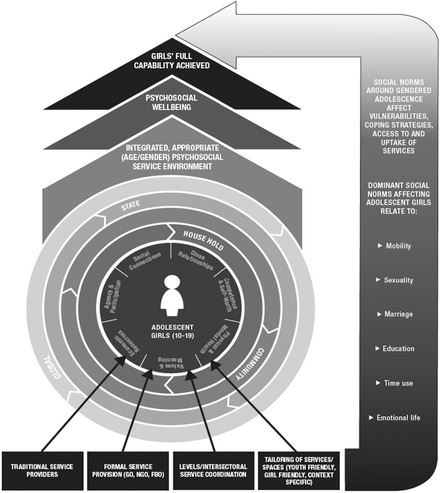
Psychosocial support for adolescent girls in post-conflict settings: beyond a health systems approach
Fiona Samuels, Nicola Jones and Bassam Abu Hamad (2017)
Health Policy and Planning, Volume 32, Issue suppl_5, 1 December 2017, Pages v40–v51, https://doi.org/10.1093/heapol/czx127
This is an output from the ReBUILD affiliate project “Psychosocial support and service provision for adolescent girls in post-conflict settings”, implemented by the Overseas Development Institute.
This publication focuses on the importance of psychosocial support services for adolescent girls in fragile contexts. Adolescence is a pivotal time in the life course but given the physical, cognitive and emotional changes triggered by the onset of puberty, it can also be a period of heightened sensitivity and vulnerability to trauma, social isolation, bullying by peers, a lack of supportive adults, and gender-based and sexual violence.
The findings highlight why humanitarian and biomedical approaches in their current form are inadequate to address these complexities. Drawing on qualitative fieldwork (opens in the ODI site – consisting of in-depth and key informant interviews, as well as group discussions in Gaza, Liberia and Sri Lanka involving a total of 386 respondents), the authors argue that going beyond biomedical approaches and considering the social determinants of health, including approaches to tackle discriminatory gendered norms and barriers to service access are critical for achieving broader health and well being.
The publication reflects on actions to address psychosocial vulnerabilities facing adolescent girls. These include tailoring services to ensure gender and age-sensitivity; investing in capacity building of service providers to promote service uptake; and enhancing strategies to regulate and coordinate actors providing mental health and psychosocial support services.
You can access the full paper here.